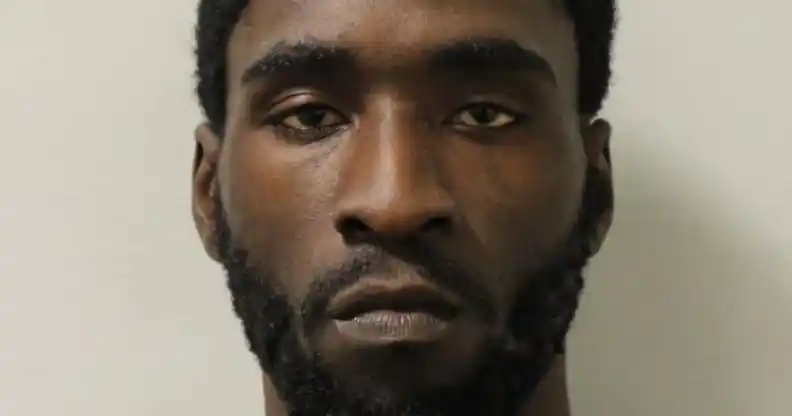‘Grindr grifter’ who murdered gay Irish dancer with date-rape drug ‘Devil’s breath’ jailed for life

Joel Osei, 26, killed Adrian Murphy. (Metropolitan Police)
Joel Osei, the so-called “Grindr grifter” who murdered a gifted gay Irish dancer with a lethal date-rape drug known as Devil’s breath, was jailed Friday (22 January) for life by a London, England, court.
The 26-year-old killed 43-year-old Adrian Murphy in 2019 with a fatal overdose of scopolamine, a medication which comes from the deadly nightshade plant family.
The drug, otherwise known as burundanga, treats nausea and motion sickness, among other conditions, but its side-effects range from drowsiness to memory lapses.
Osei and his ex-partner, Diana Cristea, 19, ruthlessly targeted queer men using fake profiles on online dating apps such as Grindr, robbing them of their valuables and gutting their bank accounts.
Following a trial at Croydon Crown Court, justice William Davis, according to the Helensburgh Advertiser, handed down a life sentence with a minimum term of 32 years.
Osei was also given a concurrent sentence of five years in prison after police connected him to a second incident, in which a victim was poisoned with the same drug just two days earlier. He was given no separate penalty for multiple counts of theft and fraud.
Cristea will be sentenced at a later date for murder, two counts of theft and eight counts of fraud.
Victim spiked and robbed by Joel Osei: ‘I am not quite sure how life will ever be the same’
Adrian Murphy invited Joel Osei to his luxury riverside apartment in Battersea, southwest of the capital, on 1 June 2019. His body was discovered three days later by his former partner.
Investigators found Murphy’s mobile phone has been hurled into the toilet and a can of Coca-Cola was found to contain traces of Devil’s breath – the drug was discovered in Murphy’s system during a post-mortem.
Various valuables, such as his laptop, wallet and a Louis Vuitton bag, were missing. Osei’s fingerprints were also found on a bottle of whiskey left at the property, they added.
Osei, phone logs showed, communicated with Cristea 23 times while at Murphy’s residence. He was later captured by local surveillance footage leaving the apartment complex, the designer bag in hand, to meet Cristea.

Dancer Adrian Murphy. (Adrian Murphy/Facebook)
The day after, he and Cristea, both based in Seven Sisters, north London, attempted to buy £62,000 of diamonds from a New York jeweller in Murphy’s name.
Detectives also linked the pair to an earlier incident in the northeast neighbourhood Walthamstow. The victim, 40, similarly invited Osei to his flat – hours later, he was found by neighbours in an unresponsive state with Devil’s breath in his system.
His residence had been ransacked, possessions swiped and sold. The victim survived, waking up in hospital – his last memory being Osei pouring him a glass of orange juice – after neighbours found him almost naked and befuddled.
The “horrific and humiliating” attack, the survivor told the court, left him “insecure”.
He added: “I am not quite sure how life will ever be the same.”
Police paired Osei and Cristea to both crimes as Osei had used the same phone number to contact both victims, with internet history on his phone and laptop revealing he had purchased the drug in May.
“You left him either dying or dead,” said Davis, “and what did you do then? You set about using his debit and credit cards which you had stolen.
“You gave Mr Murphy, quite deliberately, a significant dose of a drug which you know could cause death.
“That much was said in clear terms in the first piece of literature you looked at.”

